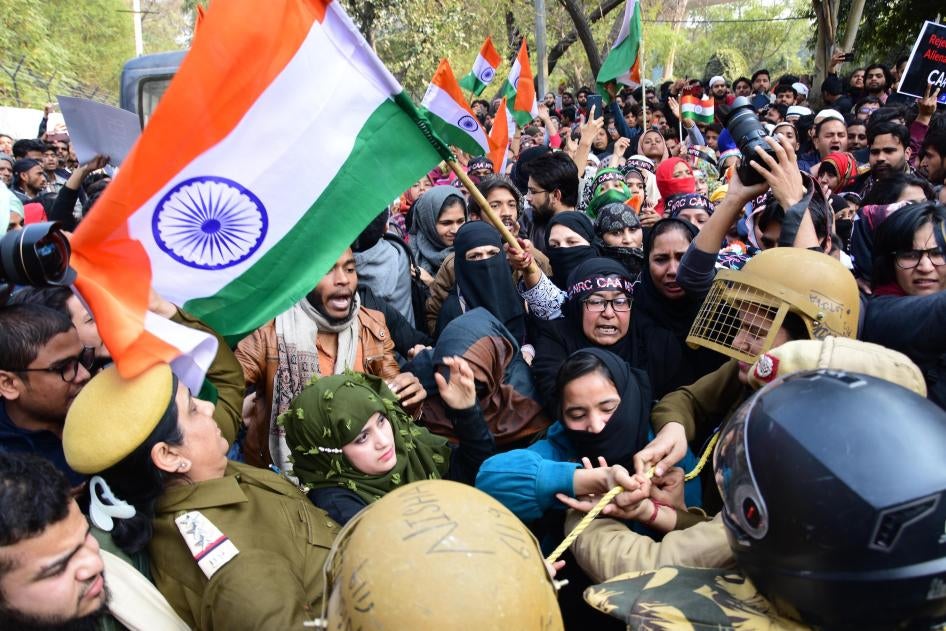India’s Bharatiya Janata Party (BJP)-led government and its prominent supporters have been responding to recent international criticism of widespread discrimination against minority communities by stoking nationalism, even blaming a “colonial mindset.”
Two recent court rulings provide BJP leaders an opportunity to reverse the damage that the government’s divisive Hindu majoritarian policies have caused to the rule of law and India’s standing as a rights-respecting democracy.
On February 6, the Supreme Court criticized the police in Uttar Pradesh state for failing to investigate allegations in 2021 from a 62-year-old Muslim man who alleges he was beaten and abused because of his faith. The perpetrators of such hate crimes against Muslims and other religious minorities are often BJP supporters who are seldom prosecuted, and in this case the state government filed an affidavit denying that the attack was over religion. But one of the judges, noting the authorities’ failure to investigate, said: “When you create a climate where you foster hate crime, encourage it, do not prevent it, then it becomes a very serious thing.”
Two days earlier, a Delhi sessions court dismissed allegations that student protesters had committed violence and upheld their right to dissent. The police had accused 11 students, most of them Muslim, with inciting violence in December 2019 during their protest against a discriminatory citizenship law. The court found that the police charges made “scapegoats” of protesters and that the prosecution should have “abstained from filing such ill-conceived” charges.
These cases of police bias are yet another indicator that the BJP ideology of Hindu majoritarianism is finding its way into the ruling party’s governance. Fearing such outcomes, the Supreme Court, in a landmark 2006 decision, issued directives to kickstart police reforms, including to insulate the police from government interference and influence, and enhance police accountability. But the police and other law enforcements agencies have resisted these reforms, and have filed numerous politically motivated cases, including under counterterrorism, sedition, financial regulation, and tax laws to silence and punish critics.
If India’s government wants to regain global credibility, it is crucial that its political leaders as well as public officials pay heed to Justice KM Joseph, who said this week, “Action of every state officer augments respect for the law. Otherwise everyone will take law into their own hands."









